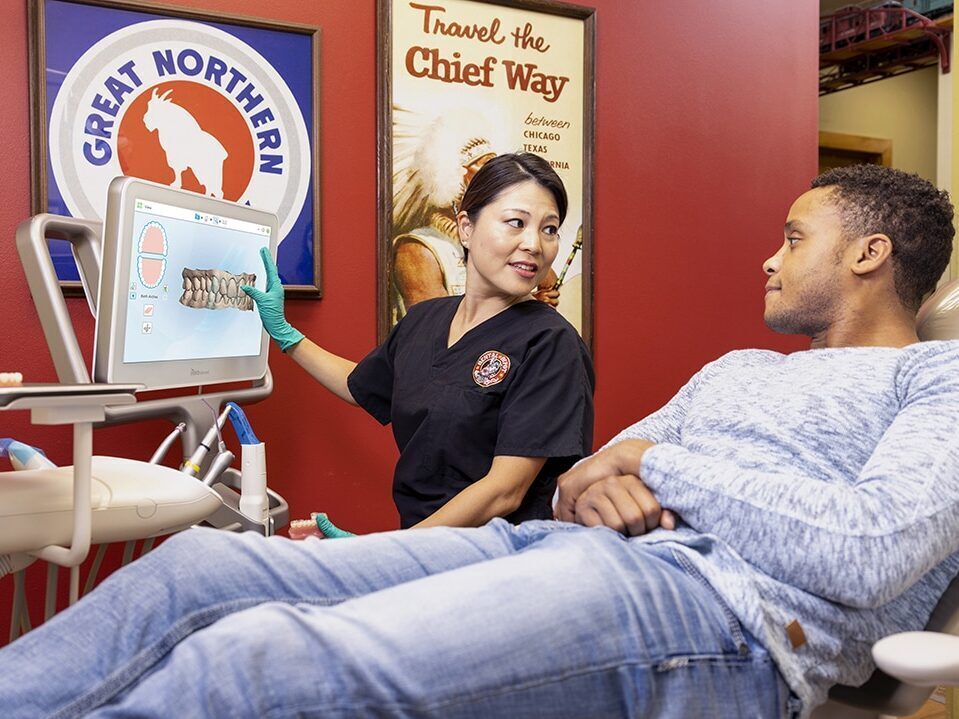The oral surgeon will provide anesthesia before performing the procedure in order to ensure that you’re as comfortable as possible. The actual procedure takes place in a series of four simple steps.

The actual procedure takes place in a series of four simple steps.
Note: There are some implant systems, called one-stage – or single-stage – implants, that already have an abutment attached. This implant procedure requires a cooperative effort between an oral surgeon who creates and inserts the final replacement teeth along with the rest of your implant team. One-stage implants take advanced training. We are proud to offer them at Dental Depot.
Usually, we give patients a temporary prosthetic while they wait for osseointegration to occur (see Step 2). This temporary crown isn’t fully bonded to the implant. We don’t want to put the permanent crown in place in case the implant shifts somewhat during the healing process. This allows us to ensure that the final tooth is properly aligned.
Meanwhile, we’re busy custom-creating your permanent crown in our lab. Temporary teeth come right off the shelf, and can’t possibly work as well as a crown that’s been shaped to be just right for you. When the implant system used requires a separate abutment we may even have to custom-create an abutment post. It all depends on your specific case, but either way it’s nice to know that we’re not going to deliver a one-size-fits-all solution.
Healing takes up to six months and you shouldn’t feel much during that time. Though most patients do go home with some antibiotics and pain medications they are only to provide short-term post-operative care. In a week or so, you probably won’t think much about your implant at all.
While there are risks and complications associated with every medical procedure, dental implants have a high rate of success that is consistently in the high 90s.
Some patients can develop infections. These are easy enough to treat with a standard regimen of antibiotics.
Sometimes the nerves in your lower jaw can also become irritated by implant placement. This can cause numbness and tingling in your mouth or chin. This is usually only a risk when there is a significant amount of bone loss, which is why we might recommend a bone graft prior to proceeding with a dental implant procedure.
When you care for your implants properly the titanium root may well last for a lifetime. And fortunately, your new dental implants don’t really require any special care. You just want to be especially vigilant about performing normal dental hygiene, including brushing and flossing.
Crowns may need to be replaced every seven to eight years.
There are exceptions. There is a risk, for example, that your implant could become loose, or that your implants won’t heal up properly. At that point, we’d need to remove the implant in order to fix the problem. The good news is that we can generally offer a new set of implants once the problem has been addressed. Since this situation isn’t exactly ideal, we do whatever we can do to get the implants done right the first time.
The number of appointments required varies for each patient. It could take us three to five appointments to complete all of the necessary restorative work. When you come in for your consultation we’ll talk about the work that needs to be completed and how many appointments you can expect to go through before your specific restorative work is complete.
We are committed to providing modern dental solutions to our patients in Oklahoma City and the surrounding areas.
Call us today at (405) 896-9674 or request an appointment online!
